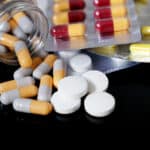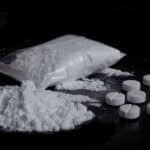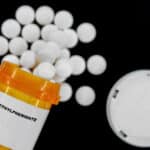Ritalin Prices | Street Costs vs Prescription Costs
Ritalin is the brand name for a prescription drug called methylphenidate hydrochloride. The United States Food and Drug Administration (FDA) has approved it to treat attention-deficit/hyperactivity disorder (ADHD) and narcolepsy.
As a stimulant, it speeds up your central nervous system.
Like other prescription stimulant medications, Ritalin is often sold on the street and abused for its energizing and mood-boosting effects. The street value of Ritalin differs from its retail price.
Ritalin Street Prices
On the street, Ritalin typically costs between $1 and $50 per tablet. The exact price depends on the dosage, which can be 5mg, 10mg, or 20mg. In general, the higher the dosage, the higher the price.
Another factor that affects Ritalin’s street value is location. In most cases, the drug costs less in big cities and more in rural areas. That’s because cities tend to have a higher supply of Ritalin, which often leads to lower prices.
Ritalin also tends to cost less when sold in schools. Some middle and high school students sell the drug to their classmates for around $1 to $2 per tablet, often after stealing it from family members.
Ritalin Prescription Costs
When prescribed by a doctor, Ritalin usually costs between $30 and $200 per prescription, depending on the dosage and number of tablets prescribed.
On average, for a 60-tablet supply, 5mg tablets cost between $60 and $80, 10mg tablets cost between $70 and $90, and 20mg tablets cost between $90 and $120.
The price also varies depending on the pharmacy. For example, a 60-tablet supply of 20mg Ritalin tablets typically costs about $110 at CVS Pharmacy, $95 at Walgreens, and $90 at Walmart.
No matter where you get it, you may be able to lower the drug’s price by:
- using your Medicare or insurance plan
- using a coupon or prescription discount card
- getting the generic version of Ritalin (methylphenidate HCL)
If you still find the drug too expensive, talk to your doctor about trying another version of methylphenidate, such as Concerta or Methylin.
Your doctor may also recommend switching to another ADHD medication, such as amphetamine (Adderall) or lisdexamfetamine (Vyvanse). Depending on your location, insurance, and other factors, these drugs may cost less than Ritalin.
Risks Of Ritalin Abuse
When used as prescribed by a health care professional, Ritalin is generally safe. However, as a controlled substance, it poses serious health risks when abused.
Ritalin abuse occurs when you use the drug in a manner not prescribed by your doctor. For example, you might take it more often than prescribed, take higher doses than prescribed, or mix it with other drugs.
The main risks of Ritalin abuse are increased side effects, overdose, and addiction.
Increased Side Effects
The most common side effects of Ritalin include:
- nervousness
- irritability
- trouble sleeping
- loss of appetite and weight loss
- dizziness
Some people also experience rarer, more serious side effects, such as:
- chest pain
- shortness of breath
- psychosis (a loss of connection with reality that usually includes paranoia, hallucinations, and delusions)
- fainting
- seizures
If you or someone you know experiences these more serious effects, seek medical advice immediately.
Overdose
Like other CNS stimulants, Ritalin can cause a life-threatening overdose if you use too much of it. Common symptoms of a Ritalin overdose include:
- sweating
- blurry vision
- dry mouth
- nausea and vomiting
- uncontrollable shaking of a part of the body
- confusion
- loss of consciousness
Seek medical attention right away if you or someone you know experiences these symptoms.
Stimulant Addiction
Ritalin addiction is a serious disease that makes you feel unable to control your Ritalin use. Common symptoms include:
- intense cravings for Ritalin
- loss of interest in activities once enjoyed
- physical dependence (experiencing unpleasant withdrawal symptoms, such as depression and fatigue, when you don’t use Ritalin)
- tolerance (needing increasingly larger or more frequent doses of Ritalin to feel the desired effects)
Like other types of addiction, Ritalin addiction requires professional treatment. When left untreated, it can raise your risk of health problems like high blood pressure, heart attack, and stroke. It can also cause serious problems in your personal and professional life.
If you or someone you love struggles with Ritalin, please contact Northeast Addictions Treatment Center. Our board-certified health care providers offer medical detox, mental health counseling, and other personalized, evidence-based treatment options.
Sources
Written by
Northeast Addition Editorial Team
©2024 Northeast Addition Center | All Rights Reserved
This page does not provide medical advice.







